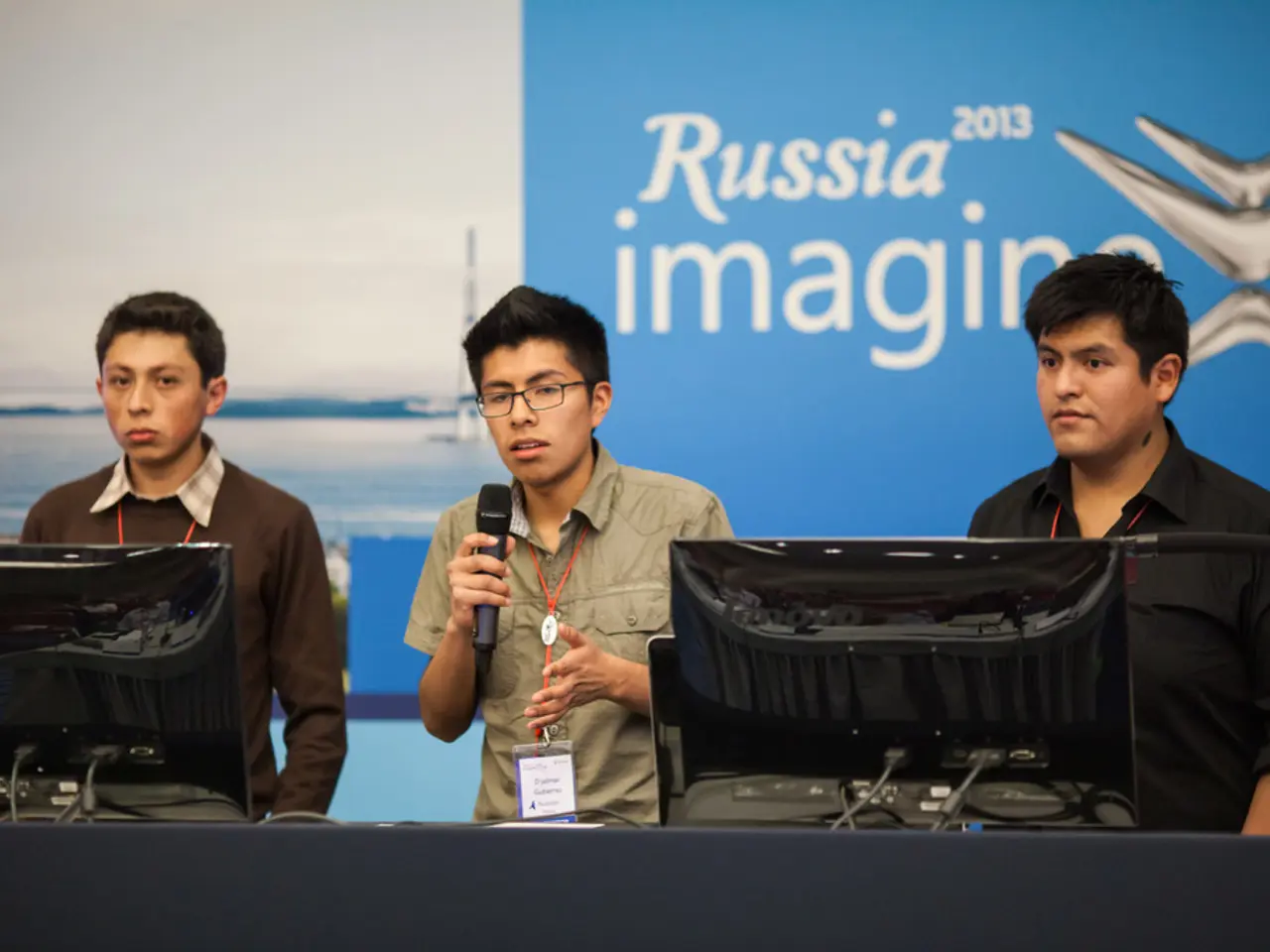U.S. companies Nvidia and AMD will reportedly allocate 15% of their revenue from AI chip sales in China, as part of a significant agreement.
Colombian Senator and Presidential Hopeful Miguel Uribe Assassinated
In a tragic turn of events, Colombian Senator Miguel Uribe, a prominent figure in the right-wing Democratic Centre party, died today at the age of 39, two months after being shot at a campaign rally.
Uribe had been a rising star in Colombian politics, with a political pedigree that stretches back to his maternal grandfather, Julio Cesar Turbay, who served as Colombia's president from 1978 to 1982. His mother, journalist Diana Turbay, was also a prominent figure, but her life was tragically cut short in 1991 during a botched rescue mission after being kidnapped by the Medellin Cartel.
Uribe began his political career at a young age, being elected to Bogota's city council at just 25. He rose through the ranks, becoming a city government secretary at the age of 30, the youngest person to hold the position. In 2016, he led the Democratic Centre party's legislative elections, winning a seat in the Senate.
In the 2022 legislative elections, Uribe led the Senate slate for the Democratic Centre party with the slogan "Colombia First," winning a seat in the chamber. He was also a presidential hopeful, known for his sharp criticism of leftist President Gustavo Petro's administration. At the campaign rally where he was shot, Uribe was giving a speech when he was attacked.
The shooting occurred on June 7, and Uribe underwent multiple surgeries in an attempt to save his life. However, his condition worsened over the past weekend due to a hemorrhage in his central nervous system. Despite the best efforts of medical professionals, Uribe could not be revived.
The assassination of Uribe evokes memories of intense political violence in Colombia's past, a period marked by the assassination of four presidential candidates in the 1980s and 1990s. This era was dominated by drug cartel terrorism and armed conflict, which severely disrupted the political process and instilled fear among political actors.
Uribe's death has been attributed to dissident factions of the FARC guerrilla group, and authorities have arrested six suspects in connection with the attack. His widow, Maria Claudia Tarazona, emphasized the need for Colombia to move beyond its grim history of political violence during his funeral, attended by former presidents and national leaders.
Former President Alvaro Uribe, leader of the Democratic Centre party and Miguel Uribe's cousin, called him "a hope for the homeland." Uribe's paternal grandfather, Rodrigo Uribe Echavarria, headed the Liberal Party and supported Virgilio Barco's successful 1986 presidential campaign.
Uribe's death marks a sad day for Colombian politics, and his legacy will undoubtedly be felt for years to come. His assassination serves as a reminder of the dangers that political figures in Colombia face, and the need for the country to continue working towards a more peaceful and stable future.
**References**
- "Colombian senator Miguel Uribe dies after being shot in campaign rally." BBC News, 14 August 2022. https://www.bbc.com/news/world-latin-america-62587503
- "Colombia mourns slain senator Miguel Uribe, presidential hopeful." Associated Press, 14 August 2022. https://apnews.com/article/colombia-politics-americas-and-the-caribbean-8967d0065b61032766e6b671c82b4e71
- "Diana Turbay, journalist and mother of presidential candidate Miguel Uribe, was killed in 1991." Colombia Reports, 14 August 2022. https://colombiareports.com/diana-turbay-journalist-and-mother-of-presidential-candidate-miguel-uribe-was-killed-in-1991/
- The assassination of Miguel Uribe, a Colombian senator and presidential hopeful, has sparked a nationwide discussion about the role of politics in general-news, highlighting the ongoing challenges faced by political figures in the country.
- The unsolved case of Uribe's mother, journalist Diana Turbay, who was tragically killed in 1991, and the recent assassination of Uribe himself, underscores the need for stricter laws to protect political figures from violence, a critical issue in Colombian politics.
- As the investigation into Uribe's assassination continues, focusing on dissident factions of the FARC guerrilla group, attention turns to the upcoming elections and the potential impact on the political landscape, as Colombians strive towards a more peaceful and stable future.






